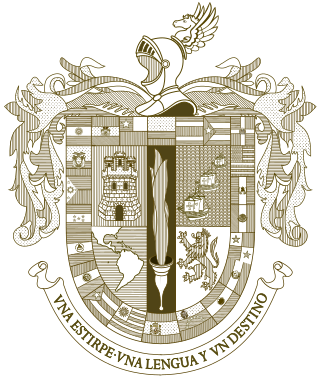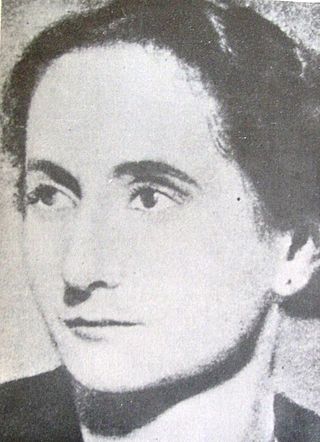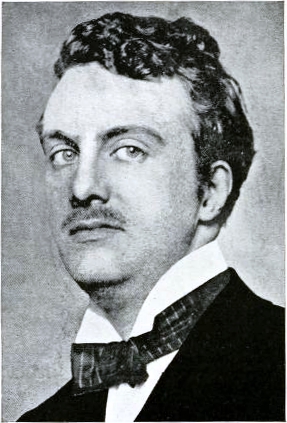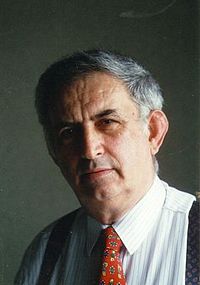Related Research Articles

The Royal Spanish Academy is Spain's official royal institution with a mission to ensure the stability of the Spanish language. It is based in Madrid, Spain, and is affiliated with national language academies in 22 other Hispanophone nations through the Association of Academies of the Spanish Language.

The Association of Academies of the Spanish Language is an entity whose end is to work for the unity, integrity, and growth of the Spanish language. It was created in Mexico in 1951 and represents the union of all the separate academies in the Spanish-speaking world. The association publishes reference works on the Spanish language and commemorative editions of Hispanic literature, among other publications.
Ramón Isaac Alcaraz was a Mexican poet, writer and liberal politician.
The Academia Chilena de la Lengua is an association of academics and experts on the use of the Spanish language in Chile. It is a member of the Association of Academies of the Spanish Language and is a part of the Instituto de Chile.
The Academia Argentina de Letras is the academy in charge of studying and prescribing the use of the Spanish language in Argentina. Since its establishment, on August 13, 1931, it has maintained ties with the Royal Spanish Academy and the other Spanish-language academies that are members of the Association of Spanish Language Academies. Since 1999, it has officially been a correspondent academy of the Royal Spanish Academy.
Miguel Ángel Garrido Gallardo is a Spanish philologist and semiotician. He is the adopted son of the town of Los Santos de Maimona. He is a professor of research at the Consejo Superior de Investigaciones Cientificas (CSIC) [National Council for Scientific Research] in Madrid and distinguished university professor.

Carlos Emilio Juan Zurita y Delgado, Duke of Soria and Hernani, is a Spanish physician and the husband of Infanta Margarita, Duchess of Soria. He is a brother-in-law of King Juan Carlos I and the uncle of the current Spanish king, Felipe VI.

Leonardo Garet is a Uruguayan writer, teacher, and member of the National Academy of Uruguay.

María Rosa Lida de Malkiel, born Maria Rosa Lida, was an Argentine philologist. Notable as an Hispanist medievalist, she came to the United States on a Rockefeller Foundation program of study. Beginning in 1947, Lida de Malkiel lectured for many years in the US, including at Harvard University, the University of California at Berkeley, and Stanford. An advisor to the editorial boards of two professional journals, in the 1950s she was admitted to the Real Academia Española and the Academia Argentina de Letras.
Raimundo Lida (1908–1979) was an Argentine philologist, philosopher of language, literary critic and essayist. He specialised in Romance philology, aesthetics, the literature of the Spanish Golden Age and modernist literature. He taught at Harvard University from 1953, where he was chair of the department of Romance Languages. The second of three children, his siblings were the hematologist Emilio Lida and María Rosa Lida de Malkiel, also a philologist.

Emilio Rosenblueth Deutsch (1926–1994) was a Mexican engineer who devoted himself to the research of seismic events, and in particular to study the behavior of buildings against earthquakes and other seismic activity.
Aurelio Lucchini was a Uruguayan architect and architectural historian.
Adolfo Esteban Elizaincín Eichenberger is a Uruguayan scholar and linguist.

Rosa María Beltrán Álvarez is a Mexican novelist, short story writer, essayist, and translator. She was the deputy director of La Jornada Semanal from 1999 to 2002 and has been a member of the Sistema Nacional de Creadores from 1997 to 2000. She was the director of the Literature department at the UNAM and is actually the chair in Coordinación de Difusión Cultural at UNAM. On June 12, 2014, she was appointed as a member by the Academia Mexicana de la Lengua as the 36th Chair, becoming the tenth woman to hold this position.
Manuel Alvar was a Spanish linguist, historian, and university professor who specialized in the study of dialectology and philology of the Spanish language. Throughout his career, Alvar oversaw and influenced the creation of many Spanish linguistic atlases; maps which recorded speech variations in a given geographical area. He served as Director of the Real Academia Española for four years and was a member of language academies throughout Europe and Latin America.
Juan Arturo Grompone Carbonell is a Uruguayan engineer and writer.

Alberto Zum Felde was a Uruguayan historian, critic and essayist.
José María Obaldía is a Uruguayan teacher, writer, and lexicographer.

José Paulo Cavalcanti Filho is a Brazilian lawyer and writer. He graduated from the Recife Faculty of Law. He was secretary general of the Ministry of Justice and (interim) Minister of Justice, under former president José Sarney. He was also President of the Administrative Council for Economic Defense (CADE), of EBN and of the Social Communication Council. Consultant for UNESCO and the World Bank, he occupies chair 27 of the Pernambuco Academy of Letters. As a novelist, he has more than 18 titles written, some published abroad. He is also a deep connoisseur of the work of the Portuguese writer Fernando Pessoa. In 2012, he won the José Ermírio de Moraes award for his book Fernando Pessoa – a quasi-autobiography. It also won first place at the Book Biennial and the Jabuti Prize. He is the winner of the II Molinello Prize, in Italy. He also received awards in countries such as Romania, Israel, Spain, France, Holland, Germany, Russia, England and the United States.

Marius Sala was a Romanian linguist, member of the Romanian Academy. His activity gained international academic recognition in the study of Romance languages.
References
- ↑ "Fundación de la Academia Decreto de Ley Nº 10.350" (in Spanish). 10 February 1943.
